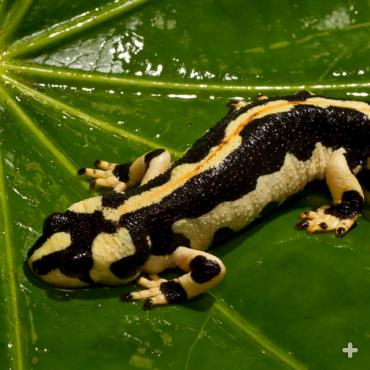It s okay to check multiple boxes.
Marbled salamander identification signs.
Light bands on shiny dark background.
Marbled salamander ambystoma opacum 127mm 5in a stocky mole salamander stays underground most of the time.
The body is generally stocky with a tail usually barely the length of the.
The bands of females tend to be gray while those of males are more white.
Discover life s page about the biology natural history ecology identification and distribution of discover life answer one or more questions on right by clicking checkboxes.
Adults can grow to about 11 cm 4 in small compared to other members of its genus.
Having an overall dark gray or black body the marbled salamander gets its name from the 4 7 white or gray bands crossing its back and sides often forming a marble pattern.
The plain belly is also black.
The upper body pattern is made up of white to light grey crossbands that run across the head body and tail.
The crossbands are grey in females white in males.
Small stout bodied species.
The background color is rich black and becomes a light bluish black on the lower sides.
The marbled salamander is a medium sized salamander with a length of 5 inches 12 7 cm see klemens 1993.
Light crossbands of variable size shape and width on an otherwise black back and sides.
Like most of the mole salamanders it is secretive spending most of its life under logs or in burrows.
Spotted by walter jahn 0 23 spotted salamander endosymbiosis by walter jahn 2 35 spotted salamander larvae by 0 59.
Males are typically smaller than females and during the breeding season their silvery white crossbands become bright white.
Markings tend to be gray in females white in males.
Marbled salamander ambystoma opacum giving rise to its name the marbled salamander is covered head to tail across is back in striking white to silver crossbands on a field that is otherwise.
The marbled salamander is a stocky boldly banded salamander.
Wildlife identification animal signs mammals birds amphibians and reptiles prevent problems basic wildlife management removing food and shelter repellents and frightening devices keeping wildlife out wildlife don t make.

